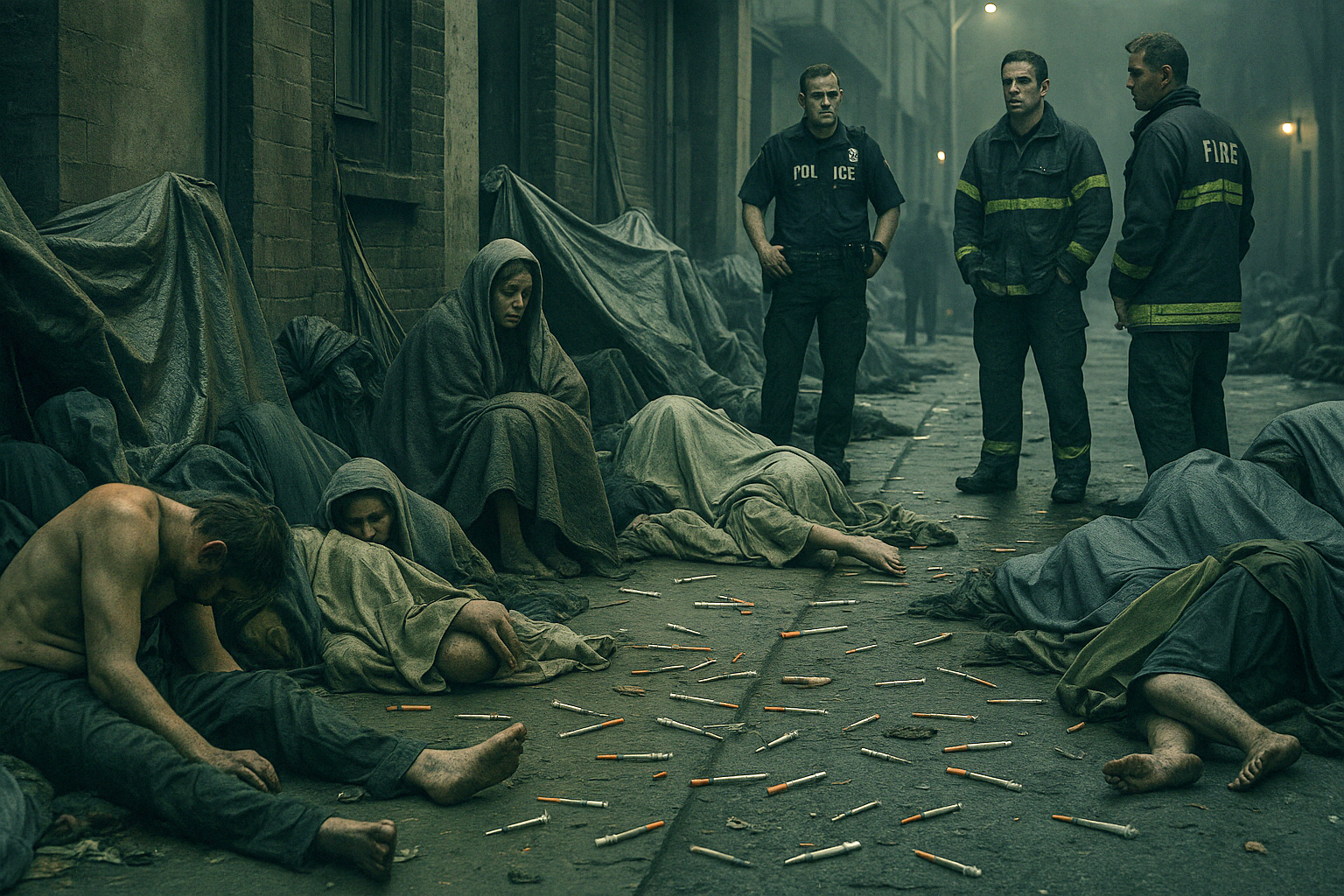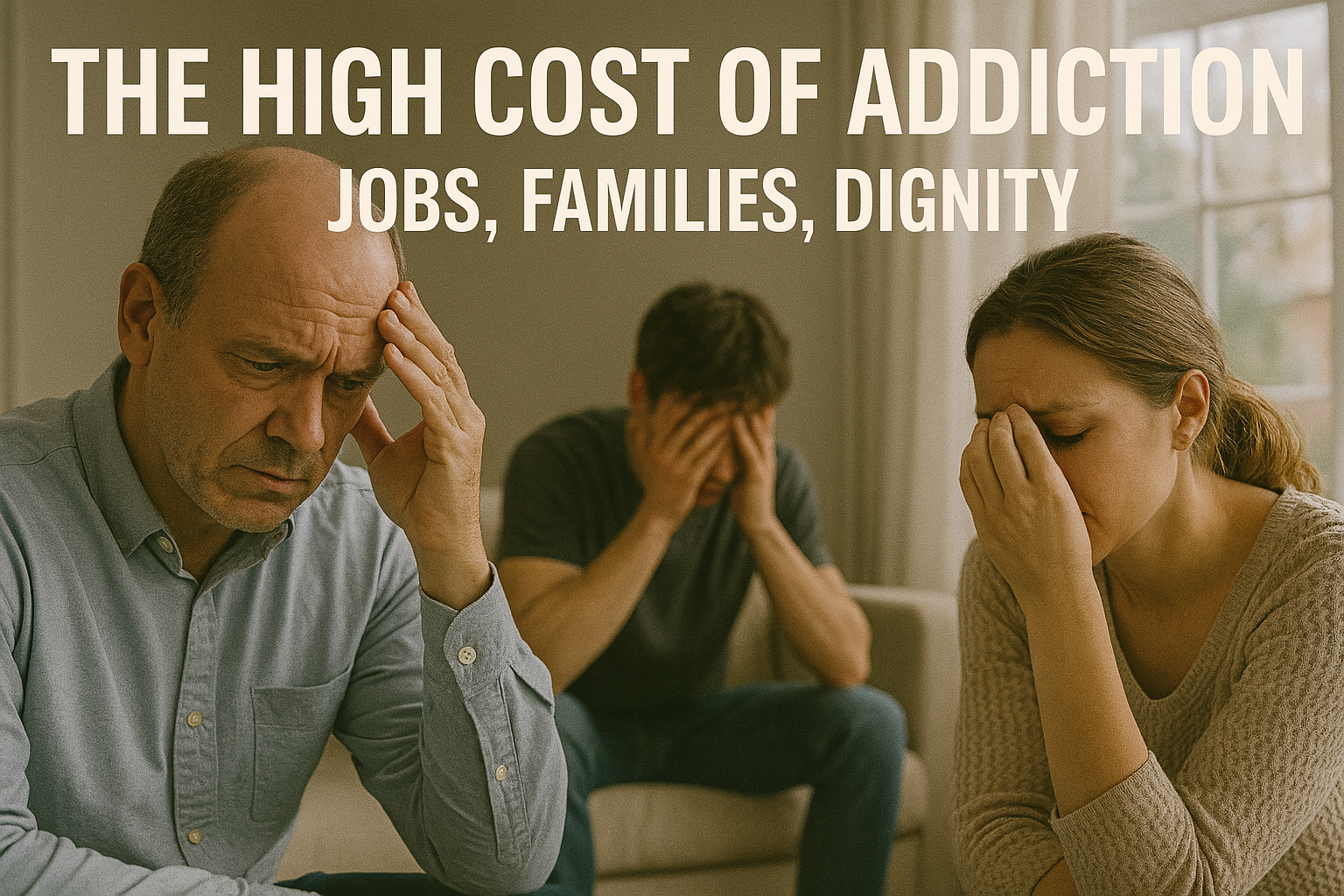Quote: “Parents are losing their children—not to death, but to a living ghost.”
Chapter 4: The High Cost of Addiction – Jobs, Families, Dignity
Addiction doesn’t start with death. It starts with distance.
A child disappears from family dinners. A spouse becomes a stranger. A mother stops showing up to work. One by one, relationships begin to fray—until all that’s left is the addiction.
And by then, it has already claimed everything.
A Human Toll Hidden in Plain Sight
The opioid crisis is often measured in overdose statistics. But what about the families who suffer in silence? The parents who search alleys and hospitals. The children growing up in foster care while their mother chases fentanyl. The partners forced to choose between saving the addict or saving themselves.
Behind every overdose is a chain reaction: missed shifts, lost jobs, unpaid rent, broken trust. Employers grow tired of excuses. Landlords change the locks. Schools label children as at-risk and offer no more than a brochure.
A Generation in Collapse
We talk of epidemics as waves. But opioid addiction has become a tide that doesn’t recede. It swallows one generation and then begins working on the next.
Babies born addicted. Teenagers selling pills to support a parent. Families lying to protect their own—until they can’t lie anymore.
Mental health services, already underfunded, cannot handle the flood. Social workers burn out. Therapists quit. And the addict? They either vanish into the system—or onto the street.
The New Normal Is Numb
In some communities, addiction is no longer an exception. It’s expected. Naloxone kits hang in schools. Churches host memorials monthly. Grandparents raise children. Teenagers attend more funerals than graduations.
And we call this compassion.
But what is compassionate about allowing lives to disintegrate while systems grow fat off their failures? What is kind about allowing someone to fall so far they forget who they were?
Dignity, Not Dependency
Addiction doesn’t just steal jobs and families. It robs people of their own reflection. The person in the mirror becomes unrecognizable—scars, sores, and shame where pride once lived.
No one dreams of becoming an addict. But once they are, society offers two choices: be managed or be ignored. Recovery? That takes resources, belief, structure—and above all, accountability. None of which are convenient.
“Not My Problem” Isn’t a Policy
Too often, families are told to let go. To detach with love. But when the only help offered is a bed and a needle, what are they letting go to?
This chapter is for the parents still searching, the children still waiting, and the addicts still fighting.
You are not invisible. But you have been abandoned.
In the next chapter, we follow the trail of money—because while addiction destroys lives, it enriches many. And those who profit from pain have no incentive to heal it.

